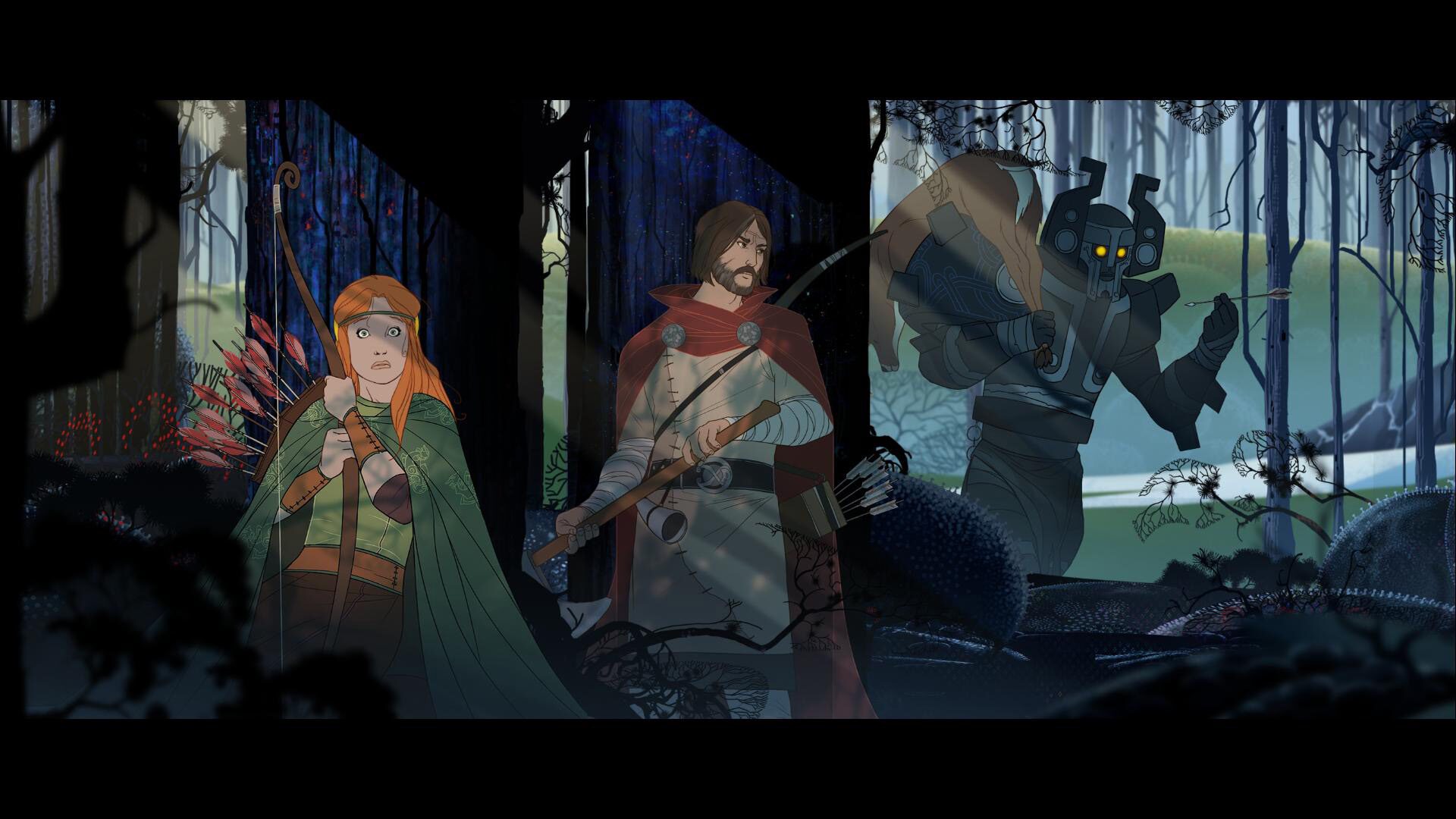
As I talked with a fellow student of the philosophy department one night during the previous semester, we managed to drift on to the topic of video games and the things we had played in the past. It was a pleasant discussion and I got lots of interesting recommendations for games to maybe purchase and review sometime, but the focal point of the conversation was in his explanation that he only really played games as a means of connecting with friends and siblings. He thought that our time would be better spent in prayer or discussing big ideas with those closest to us. All of this echoes a common anxiety of modern Catholic life, that being whether one is making good use of their time. I may not be some spiritual director on such matters, but as a student of philosophy I can examine gaming in relation to what St. Thomas Aquinas calls the “final cause,” which in plain speech means “the purpose for which something is created or done”. In today’s article, I will meditate on video games as a hobby in relation to both other pastimes and our faith life, in order to consider if there is any virtue in this medium we at Catholic Game Reviews have invested so much of our time in.
First it should be established why it is moral to have pastimes in the first place. After all, in a hyperconnected world where we are constantly aware of all of the useful and benevolent things we could be doing, it is very tempting to say having a pastime at all is actively harmful. However, this couldn’t be further from the case. As A.G. Serillanges, O.P. discussed in the ninth chapter of The Intellectual Life, it is important to allow one’s body and mind periods of recovery between intellectual labors, and in general doing more than just one’s duty will ultimately make a person more well-rounded. Thus pastimes are a means by which people build themselves back up to full capacity after they have become exhausted, and we certainly cannot reject them thinking we are tireless beings in the face of our vocations. Even Christ fell three times while carrying His cross, the physical manifestation of His duty as the Lamb of God, and He fell down because the journey was pushing His human body to its limits. Though the cruel Romans offered our Savior little respite on the way to Calvary, we certainly have the responsibility to offer ourselves that rest so we may complete our own journey in the best shape we can. Just don’t forget to actually keep walking that road so you don’t wind up halfway down the street at the hour of your judgment.
Now that it is clear why recreation is important, why should we count video games as a viable activity to facilitate the restoration of our minds? To answer this, I shall outline the merits of three other pastimes which the average Catholic would likely approve of and see if gaming reflects any of them.
The examples I will use are: reading for a book club, having a local tennis league, and tending a garden. These particular activities were selected through the highly objective and methodically sound process of… asking my mother for suggestions. But seriously, we shall see that each of these activities have spiritually efficacious elements that constitute fair grounds for a Catholic to participate in them.
Beginning with the book club, the major purpose behind reading fiction I would say is education about the human experience. What I find intrinsically beautiful about stories is that you can find a piece of their creators at the heart of all of them, each dying to express some kind of insight. For some it is to immortalize a piece of their life’s history, for others to offer moral guidance, and others still to catalyze their abstract and lofty thoughts into something accessible. Listening to those voices teaches us something about the world, be it from a universal standpoint or just about one person in it, and in turn we as Catholics can discern what can be used from that knowledge to further our spiritual journeys, or sometimes spur us to consider counterpoints against a bad lesson. Sure, this is all much more obtuse than simply discussing real life experiences with people, but I think the element of rest that fantasy brings us is as important as sitting down and expending energy to work though heavy realities with others.

The other major boon of a book club is the community aspect. Engaging in fiction with the intent to discuss it with friends or aficionados is certainly useful in better understanding the stories, and can even foster discussions about a text’s true meaning. More fundamentally however, communal activity simply is the mode of existence for all rational beings (humans). There is not one person in this world who is not called to live with respect to, and in tandem with, others. Obviously humans necessarily stick together in order to ensure society’s future, but there is also the spiritual element of living in community with God by praying regularly and following His laws among other devotions. Even God Himself lives in perpetual community since He is the Holy Trinity (and you also now know that God didn’t create the world because He was lonely). In light of this, activities that seek to remind us of that ultimate reality of rational beings are surely in accord with our nature, which is a good thing.
A tennis league similarly encourages a gathering of people together for a community activity, and indeed more so than the book club since tennis can only be played with two or four players. The unity fostered by playing a sport is definitely different though, because whereas reading leans into an artistic and academic discussion, tennis encourages competition and feedback regarding one’s skills. While comparing oneself to another isn’t healthy to do in extremes, being able to test one’s strength against an opponent helps to reveal our talents and limits alike, and such information is always useful. Plus, there can be much satisfaction in watching others grow in skill alongside you as there is seeing yourself improve. As I said in my Melty Blood: Type Lumina review, beholding others working hard at the same activity as yourself can be a light of hope and a reminder that your efforts aren’t in vain, be that in mastering a game or deeping your piety. What a tennis club has uniquely going for it as an example of a virtuous pastime is the physical exercise component. It is well known among the faithful that to care for one’s body is to care for a temple of God, so a good hobby that facilitates such maintenance is both natural to the human person and spiritually efficacious.
Lastly there is gardening, which unlike the first two activities is not inherently social, but certainly not a solitary pastime. To prepare and tend the land for the sake of raising life from it grants one an opportunity to marvel at God’s creation and to play a small part in its upkeep. In the natural world we can find some of God’s most breathtaking artistry, so spending time surrounded by it definitely has the capacity to raise one’s mind towards thanksgiving to God for such gifts. It is this fostering of an appreciation for God’s creation that I think gives gardening a place in Christian life. Beyond that though, the virtues of patience and diligence that raising plants requires are simply desirable in themselves, for both are in short supply these days and great boons in one’s faith life.
There are probably many other examples that I could give or even expand upon the ones I’ve already given, but for now let us return to the subject of video games. Which virtues does the hobby share with the above activities? With the book club it shares both virtues. Starting with the educational aspect, the majority of video games have stories and other artistic elements within them that teach us something about the people that made it and the ideals that they hold. Of course, if all we wanted was a good story we would just keep on reading books given gaming’s rough narrative track record, but there’s a little more to it than that. What games generally lack in the quality of their writing, they make up for in the interactive aspect of their stories. Sometimes I wonder if my exploration of Christian themes in the games I play borders on eisegesis, but I also realize that as a player you always bring something of yourself into the story too, and therein lies gaming’s advantage. The Banner Saga for example, an excellent trilogy of strategy games I may review if I find time to replay them, might just be a really dour story about fantasy Vikings trying to survive the end of the world on the surface, but the games allow the player to shape certain story outcomes through their choices and have a tangible effect on the overarching plot. Whether the Skogr caravan is a desperate band of people sacrificing their humanity to stay alive or a valorous crew of heroes bringing light amid darkness even to their own expense is totally up to the player, and I think there’s something immensely beautiful about the way Banner Saga forced me to confront the ways I might falter when pushed to the brink.

The virtue of community building, which is shared with both a book club and a tennis league, is also strongly tied to the enjoyment of video games. While there is certainly room for the kind of discussion about game stories as with the book club, it resembles the tennis league in both competitive and cooperative (doubles) senses. Working with and against other players to overcome challenges and display one’s rehearsed skills is as old as the days of the arcades, and continues to be important as e-sports become more relevant. While being good at a game may not immediately sound all that impressive to those outside of the hobby, ultimately just as some people do not have what it takes to wield a tennis racket so too are there those who can’t wrap their head around a controller. Though one is more accessible than the other, both are to some extent a talent. Neither skill is inherently more useful than the other, but there is room for both to be honed and tested. While it is true that gaming does not provide the same physical boons as a tennis club, the avenue of tactical competition it provides for those who can’t play a laborious sport seems worthy of validation, especially considering we’ve already been doing the same with board games such as chess for ages. With all that said, I would like to assert that these justifications apply mostly to local multiplayer. While netplay and discord communities aren’t bad in themselves, it has become very clear to everyone what side effects of overemphasizing one’s digital life and relationships has had on our society. Playing long distance can be great but it is not meant to supersede more intimate activity, just as prayer at home is great, even necessary, but not a replacement for visiting Jesus in His Church and in the Blessed Sacrament.
This just leaves gardening as the outlier as most video games do not concern themselves with such uplifting realities as the beauty of God’s creation. It is certainly not impossible, in the same way that some books of fiction are uniquely celebrated among Catholics as pointing to higher truths (Tolkien anyone?), but not something your average game developer aspires to. Perhaps this will always be the disadvantage of pastimes founded on the enjoyment of human inventions versus those that immerse oneself in natural things.
At this juncture I have certainly shown gaming to have some value as a use of one’s free time, however there is one last issue I would like to address: the original starter of this topic. If we can allow it that people require some downtime, why do we not simply spend that downtime focusing on higher things or praying? This is an important objection, and not one without merit in the eyes of Catholic thought. For example St. Alphonsus Ligori in his book on mental prayer, Talking With God, stated that any time we have to ourselves is time worthy of dedicating to prayer and contemplation. One might construe this and other such sentiments as a basis for rejecting all normal leisure activities. I haven’t the opinion that I can defeat this position outright, but I can try to contemplate why the Church has not banned all other uses of free time. What seems to be at play in this discussion from my perspective is a single line in the Litany of Humility: “That others may become holier than I, provided that I may become as holy as I should, Jesus, grant me the grace to desire it.” It is great for a man to dedicate every bit of time they can afford to the praise and service of God, but not all men have the same innate capacity for ceaseless prayer, and indeed nobody will attain such a capacity at all without the grace of God. Aspiring to develop such a capacity is a vocation of all Catholics, but when we run out of words to say it seems perfectly reasonable to put down one’s conversation with God and engage in something else, provided it contains some virtue that ties back to the higher reality. Be it something that draws us into greater understanding of ourselves and the world, deeper community with those around us, or appreciation for the delights God has provided for us, such pastimes are available to be part of our journey rather than against it. So in a way my friend is absolutely right when he says we should try to narrow our activities down to the most spiritually efficacious ones, however there is no shame in living in the world so long as we do not live of the world. Just remember to put your prayers first.
I mean, I suppose you can also just argue that Sertillanges’ point about being well rounded in one’s life has a strong reply to the issue in itself, and also that nobody converted anybody by just praying and not going out to share one’s faith, which sometimes involves engaging in cultural activities to get to know future converts better. But that’s not dramatic and fun to read at all! In conclusion, the educational, social, and self-reflective aspects of video games justify the pastime as a worthy use of the time not spent in prayer and contemplation. What you take away from this discussion is entirely based on your current relationship to God and leisure, but I hope whatever you find has revealed something new to consider in the year ahead. For me at least, I think I see my own relationship to this blog a lot clearer than I did before. I first started writing for Catholic Game Reviews one year ago merely at the behest of my mother to practice writing in a spiritually useful context, but over the year I’ve started to suspect that I’m really writing to increase my immersion in the faith, that I might learn to dedicate more time for prayers. I’ve a few years of writing ahead of me yet, but eventually it will be time to pursue my vocation in earnest, and when it does I want to have prepared myself to leave behind everything for God. Taking my favorite pastime and putting it into the greater context of life is just one way I’m trying to accomplish that. It’s funny to think that my own telos for writing game reviews is so that ultimately I can learn to live without video games, but I guess human existence has always been full of these weird idiosyncrasies. Unless I fall in with some monks who want a games journalist in their ranks for some reason, then I suppose I’m never leaving this site. God alone knows…
